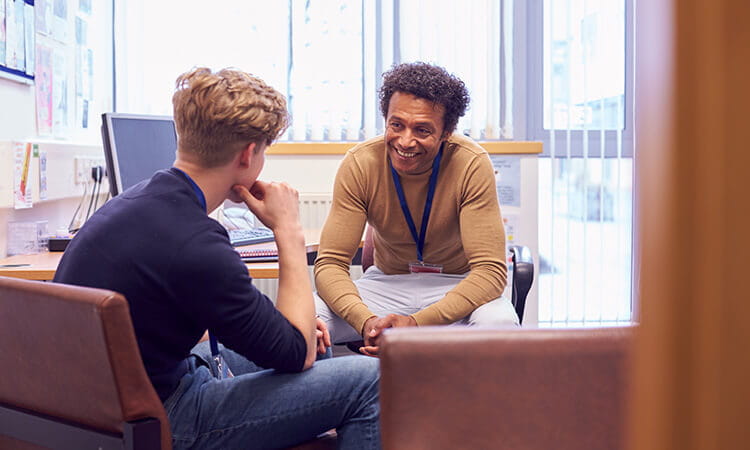What does a counsellor do?
Counsellors provide professional mental health support and guidance to individuals, couples, and groups. They create a welcoming, safe and confidential space for clients to express their feelings and thoughts without judgment. As a counsellor you would work with your clients to find solutions to emotional, mental and lifestyle challenges. You might also collaborate with other medical practitioners, such as psychologists or social workers, to develop treatment plans. Once you’ve become a counsellor you could work in a variety of settings, including schools, community organisations, government, private practice, welfare or the health care sector.Is a career as a counsellor right for me?
You might find a career in counselling rewarding if you are passionate about helping others, are open-minded and have strong emotional intelligence. Other helpful skills and attributes include:
- excellent communication and listening skills
- a highly empathetic and caring nature
- patience and keen observation skills
- strong attention to detail
- a high level of integrity
- good organisational and problem-solving skills.
How to become a counsellor
Every journey to study is individual and there are several paths to reaching your counselling career goals. Typically, you will need a formal qualification in counselling or another related field when starting your counselling career.
Source: yourcareer.gov.au
© Commonwealth of Australia

The time it takes to become a counsellor can vary depending on factors such as your educational background, training requirements, and employment opportunities.
There are multiple counsellor career pathways for you to take at UniSQ, from a one-year postgraduate graduate certificate or diploma to a two-years Master of Counselling.
Some students choose to study part-time, which increases the time it takes to finish the required courses.